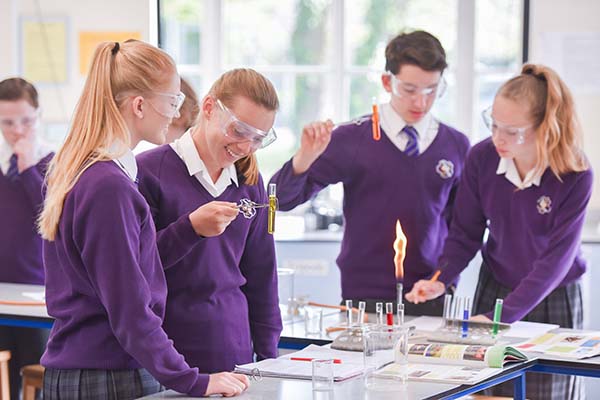
The aim of our Key Stage 3 Science course is to consolidate and extend the science knowledge that the students have been taught at Key Stage 2 and to ensure that they are fully prepared for all aspects of the GCSE Science course with the ultimate goal that many will go onto study A-levels in our subject.
Students study Biology, Chemistry and Physics at Key Stage3. The work is divided up into a number of discrete Biology, Chemistry and Physics units which are taught from an in-house scheme, Exploring Science and Activate texts. We value the learning of science through practical work and there is a big emphasis on developing student’s practical skills so that they are fully prepared for the Required Practical Tasks and PAGS that they will do in GCSE and A-Level science respectively.
Practical work takes place in fully fitted laboratories and in the spring and summer terms students are also taken outside to work at the pond and garden areas.
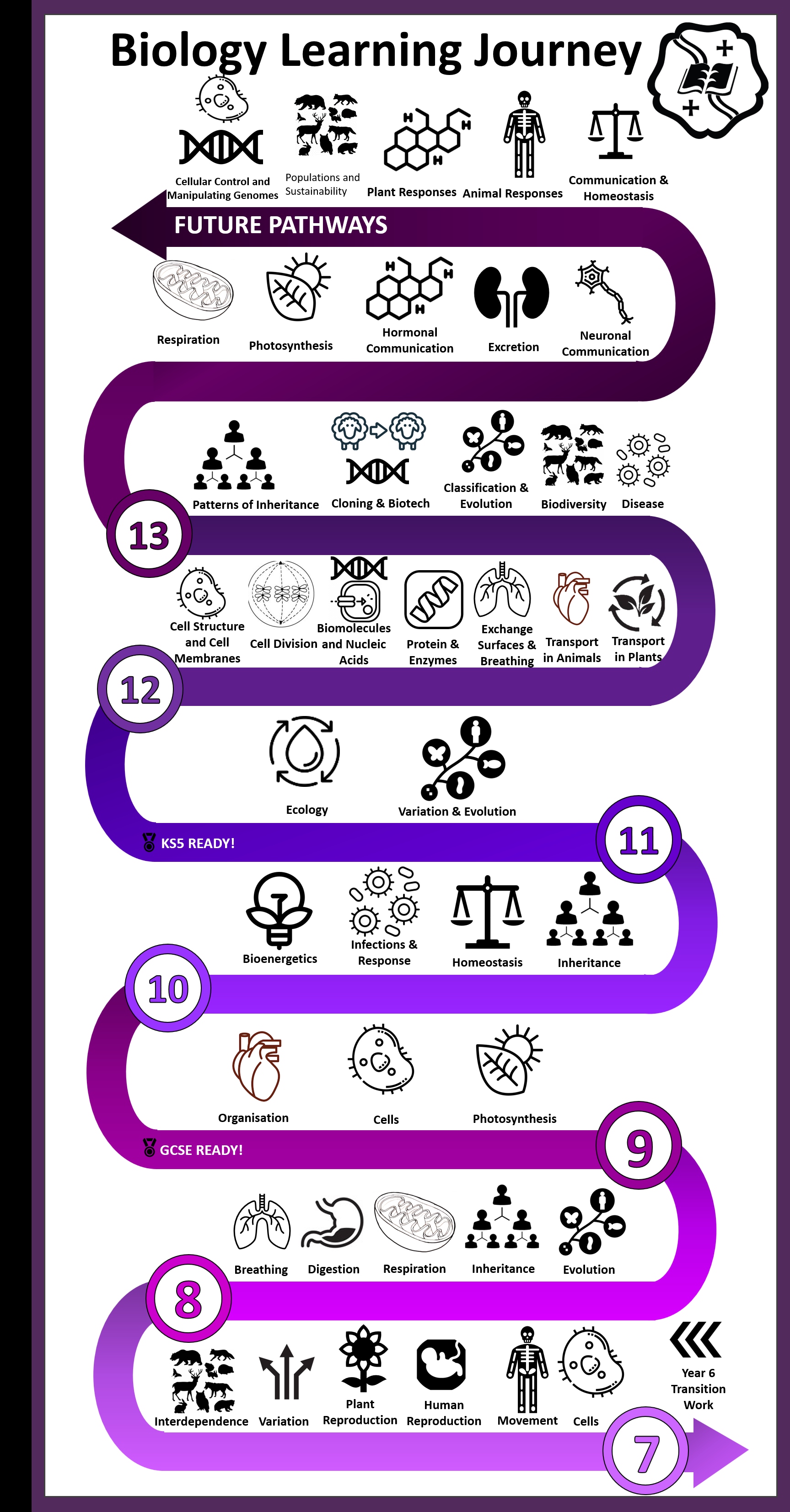
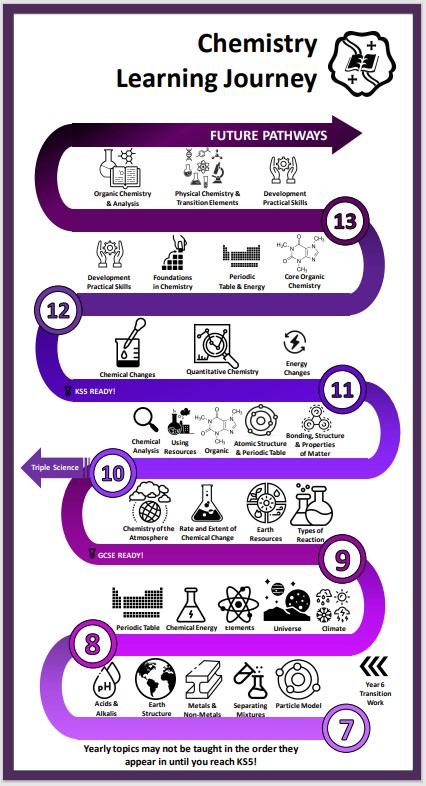
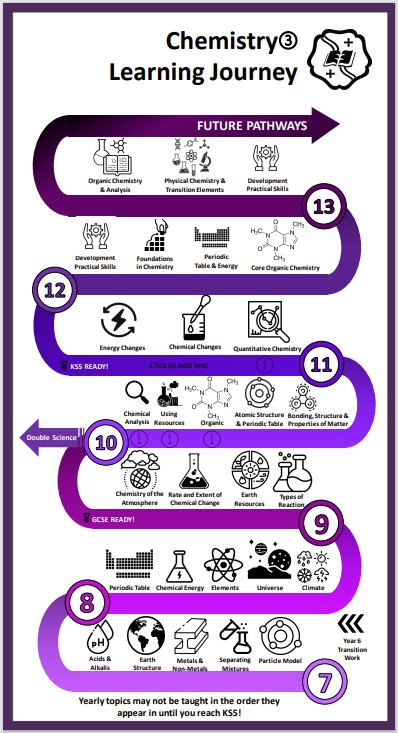
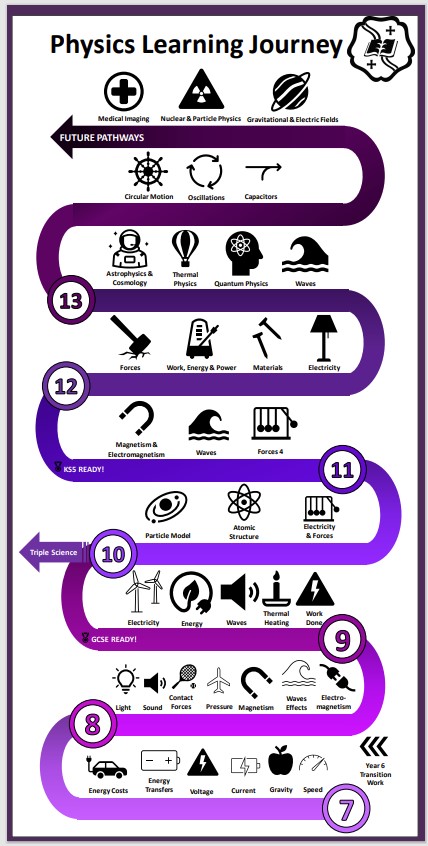
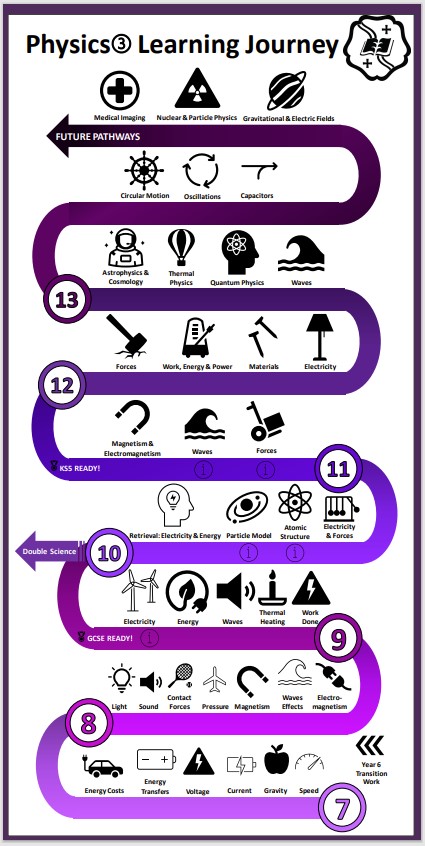
Students are offered Combined Science at GCSE. The majority of students will be studying Combined Science. This course is suitable for those students who wish to study a Science subject at A Level. For Students considering Triple Science, please see our section on studying Separate Science.
Exam Board: AQA
Qualification Title: Combined Science (Trilogy)
Qualification Specification Code: 8464
Qualification Webpage: Click here to visit the AQA webpage for the specification.
The course aims to give students opportunities to:
• Develop their interest in, and enthusiasm for, science
• Develop a critical approach to scientific evidence and methods
• Acquire and apply skills, knowledge and understanding of how science works and its essential role in society
• Acquire scientific skills, knowledge and understanding necessary for progression to further learning.



Combined Science is assessed through 6 terminal examinations taken at the end of Year 11. The papers are a total of 75 minutes and assess different parts of the course with some overlap across all the modules. There are a total of 6 papers and the units being assessed in each examination are outlined below:
Biology
Paper 1 – Cell Biology; Organisation; Infection and Response; Bioenergetics
Paper 2 – Homeostasis and Response; Inheritance; Variation and Evolution; Ecology
Chemistry
Paper 1 – Atomic Structure; Bonding, Structure and the Properties of Matter; Quantitative Chemistry; Chemical Changes; Energy Changes.
Paper 2 – Rate and Extent of Chemical Change; Organic Chemistry; Chemical Analysis; Chemistry of the Atmosphere; Using Resources.
Physics
Paper 1 – Energy, Electricity; Particle Model of Matter; Atomic Structure
Paper 2 – Forces; Waves; Magnetism and Electromagnetism
There are a huge range of vocations which are available to students who have a scientific career in mind. Just some of these are listed below:
Analytical chemist
Animal technician
Biomedical engineer
Biomedical scientist
Clinical psychologist
Clinical research associte
Clothing/textile technologis
Colour technologist
Community pharmacist
Doctor
Environmental health practitioner
Food technologist
Forensic scientist
Healthcare scientist
Hospital pharmacist
Metallurgist
Meteorologist
Microbiologist
Midwife
Nanotechnologist
Nurse
Oceanographer
Pharmacologist
Plant breeder/geneticis
Product/process developmenscientist
Research scientist
Science writer
Scientific laboratory technician
Teaching laboratory technician
Toxicologist
Vet
Water quality scientist
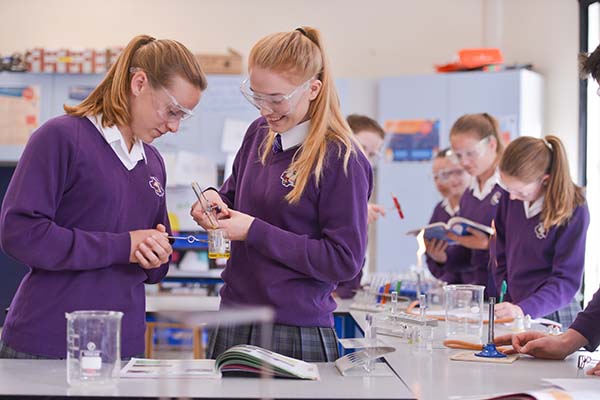
Owned by: MDS | Last Published: 20/09/2019 09:53:36 | Next Update: N/A